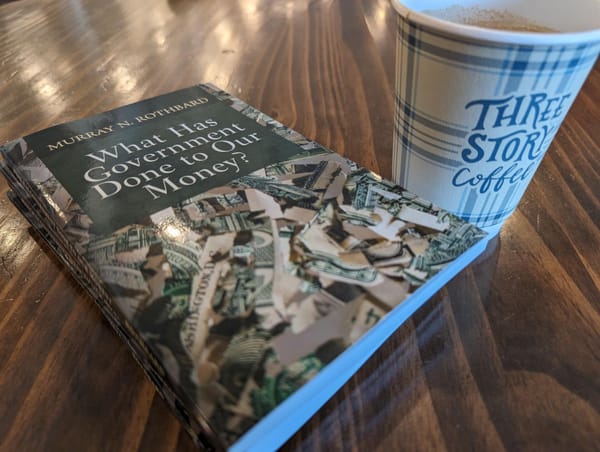The Imperative of Bitcoin Self-Custody
Money supply management is the problem masquerading as its solution. - Saifedean Ammous
The recent conviction of FTX's Sam Bankman-Fried on financial fraud charges sends a jarring signal to the crypto world. His downfall isn't a singular event; rather, it's the latest in a series of trust violations within the crypto exchange sphere, a narrative that accentuates the vital need for Bitcoin enthusiasts to embrace self-custody.
In a defining moment for crypto advocates, the legal system's gavel fell hard on Bankman-Fried, convicting him of a litany of fraud charges. His trial peeled back layers of deception, exposing a tangled scheme that siphoned off billions in customer assets, spotlighting the perils of centralized control over users' funds.
FTX's implosion is but one chapter in the disquieting history of crypto exchange collapses. We've borne witness to the Mt. Gox debacle, where 850,000 Bitcoins vanished in 2014, and the Bitfinex ordeal, which saw 120,000 Bitcoins pilfered in 2016. These breaches are stark lessons in the perils of entrusting exchanges with our digital treasures.
Beyond the exchange hazards, there lurks a risk unique to non-Bitcoin cryptocurrencies. Many altcoins forgo the decentralized, open-source bedrock that underpins Bitcoin, leaving them prone to manipulation. The infamous Bitconnect and OneCoin, which were nothing short of high-tech Ponzi schemes, have left deep scars on the crypto landscape.
Amidst this backdrop, Bitcoin's robustness and security shine through, bolstering the argument for its selection as a safer haven than its peers.
The narrative thus turns to self-custody, an increasingly persuasive argument. This practice, where you hold your private keys, shifts control from the exchange to your hands, insulating you from the maladies of hacks and internal corruption.
To self-custody, one might turn to hardware or paper wallets, where private keys are sequestered offline. The ritual of moving Bitcoin from exchange to personal wallet places the onus of security squarely on the individual.
Yet, self-custody is not a path devoid of hurdles. It demands a savvy understanding of private key management, a commitment to rigorous security protocols, and a strategy for backup and recovery.
Bankman-Fried's fall from grace is a stark parable, underscoring the imperative for fortified autonomy in digital asset stewardship. For the Bitcoin holder, self-custody transcends mere security—it's a fundamental tenet that resonates with Bitcoin's decentralized spirit.
As custodians of our digital wealth, it behooves us to seek out knowledge on self-custody best practices, fortifying our holdings against the mood swings of the crypto realm. The community abounds with resources for those poised to embark on the self-custody journey, ensuring that one can wield Bitcoin with the assurance and security it was engineered to provide.
For those ready to take the helm of their Bitcoin security, here are a few starting points:
- Bitcoin.org: A portal to a curated selection of wallets designed for self-custody. Choose Your Wallet
- Jameson Lopp's Bitcoin Resources: An exhaustive compilation of information for navigating the Bitcoin ecosystem and mastering self-custody. Bitcoin Information & Resources
- BTC Sessions: A platform offering rich discussions on Bitcoin topics, including self-custody strategies. BTC Session's YouTube Channel

